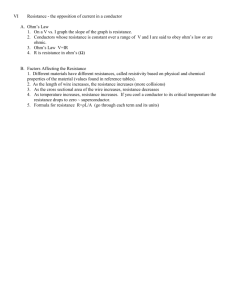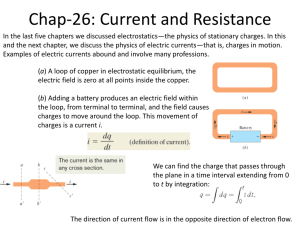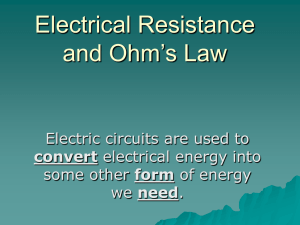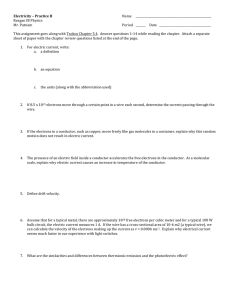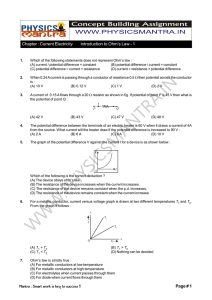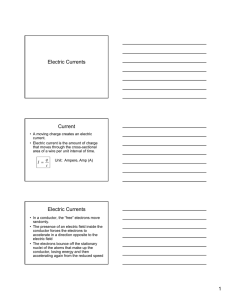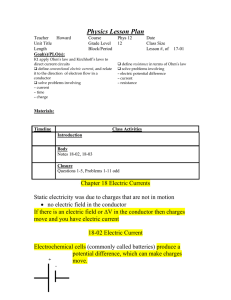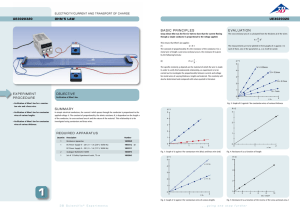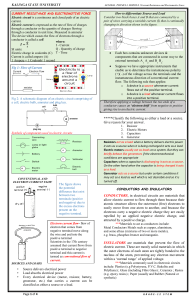Lecture 13
advertisement
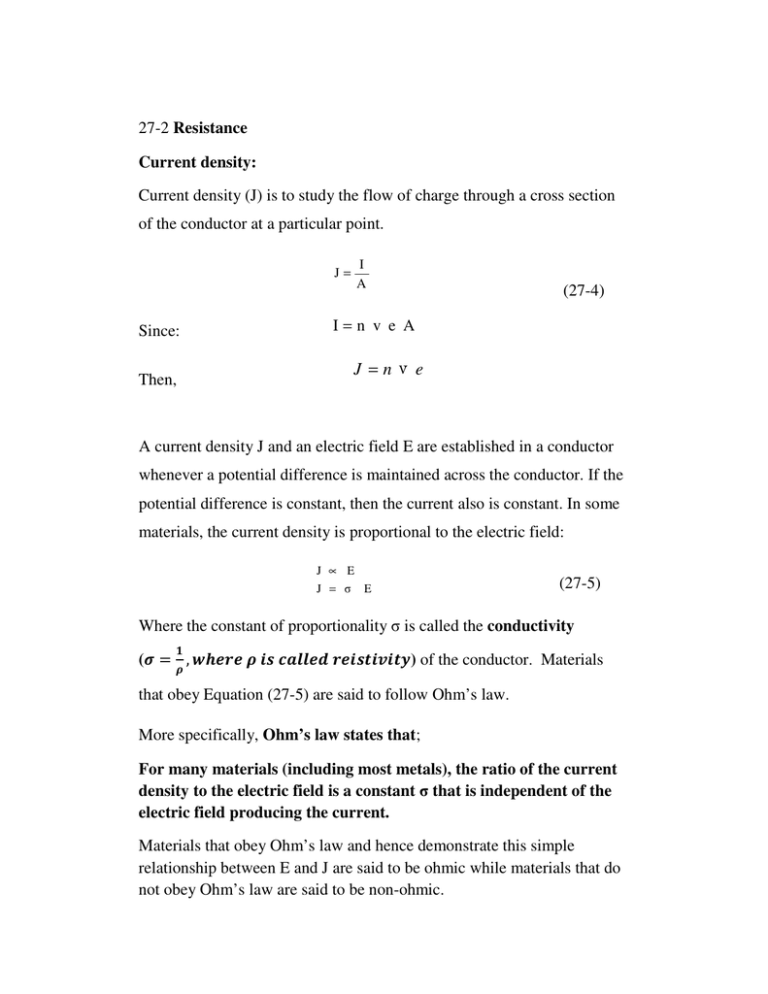
27-2 Resistance Current density: Current density (J) is to study the flow of charge through a cross section of the conductor at a particular point. J= Since: Then, I A (27-4) I=n v e A J =n v e A current density J and an electric field E are established in a conductor whenever a potential difference is maintained across the conductor. If the potential difference is constant, then the current also is constant. In some materials, the current density is proportional to the electric field: J ∝ E J = σ E (27-5) Where the constant of proportionality σ is called the conductivity ( = , ) of the conductor. Materials that obey Equation (27-5) are said to follow Ohm’s law. More specifically, Ohm’s law states that; For many materials (including most metals), the ratio of the current density to the electric field is a constant σ that is independent of the electric field producing the current. Materials that obey Ohm’s law and hence demonstrate this simple relationship between E and J are said to be ohmic while materials that do not obey Ohm’s law are said to be non-ohmic. Consider a segment of straight wire of uniform cross-sectional area A and length l If the field is assumed to be uniform, the potential difference is related to the field through the relationship, ∆V = E l Q J = σ E V l I Q J = A I ∴ = σ A J = σ V l l V = I( σ A ) V = IR V=IR R is the resistance of the conductor. Unit for R: ohm (Ω). (27-6) ρ (resistivity) = R≡ 1 σ (27-7) l l ∆V ≡ρ ≡ A I σA Example 27-2 Calculate the resistance of an aluminum cylinder that is 10.0 cm long and has a cross-sectional area of 2.0x 10-4 m2. Repeat the calculation for a cylinder of the same dimensions and made of glass having a resistivity of 3x1010 Ω . ρ(Aluminum)=2.82x10-8 (Ω.m) Example 27-3 (a) Calculate the resistance per unit length of a 22-gauge Nichrome wire, which has a radius of 0.321 mm. ρ(Nichrome)=1x10-6 (Ω.m) (b) If a potential difference of 10 V is maintained across a 1.0-m length of the Nichrome wire, what is the current in the wire?
